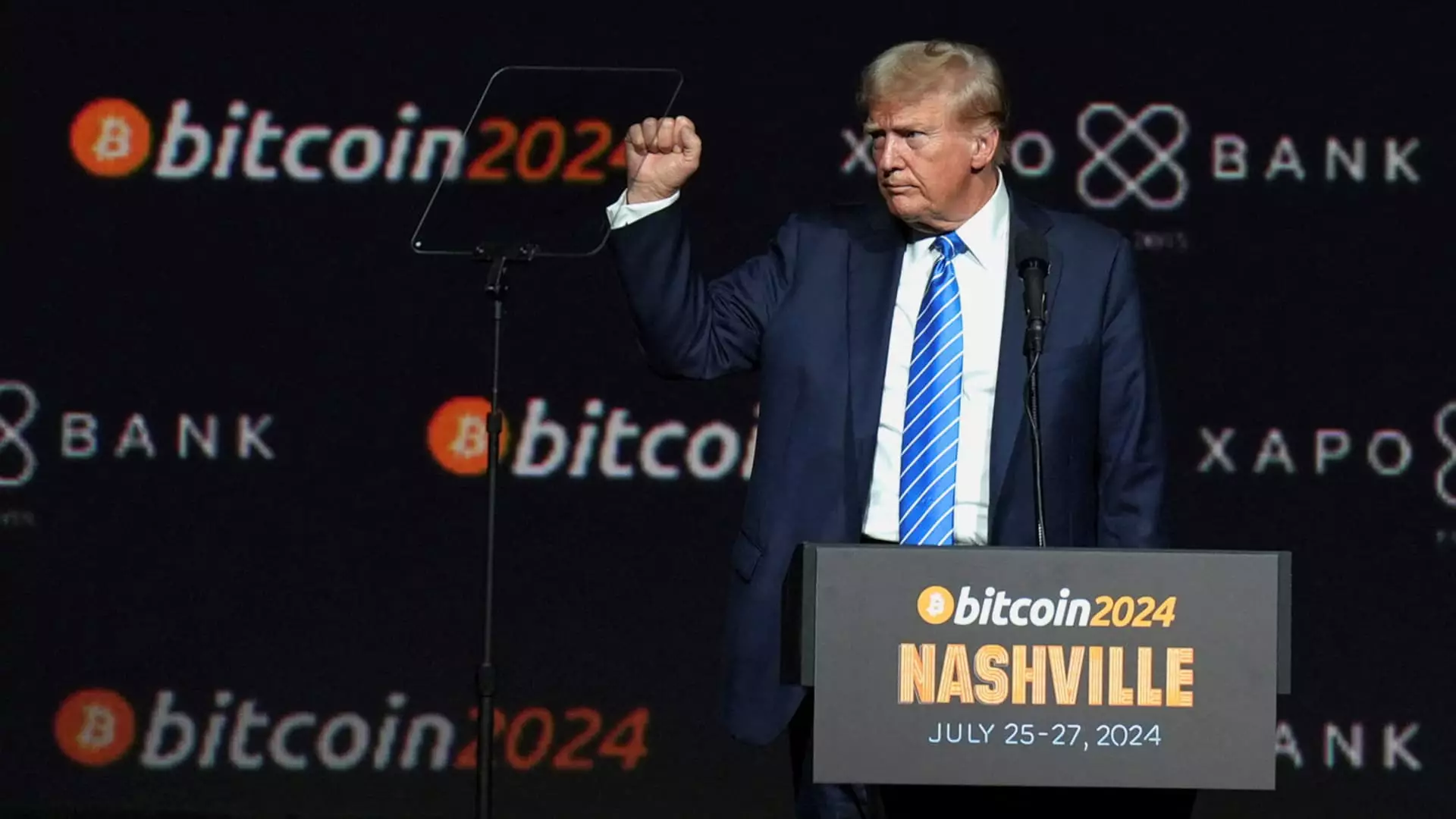In a striking pivot from his traditional media undertakings, Trump Media has boldly announced its plan to raise $2.5 billion from institutional investors, aiming to secure one of the most substantial allocations of Bitcoin by a public corporation. While the announcement itself seems ambitious, the immediate reaction in the stock market was less forgiving—witness shares plummeting about 10% following the news. This move indicates a profound shift toward not only becoming a recognized player in the digital asset space, but also an attempt to position itself at the frontlines of a burgeoning financial revolution.
Critics may argue that Trump’s foray into cryptocurrency is simply a gamble, especially given the volatility and speculative nature of the Bitcoin market. Yet, it’s also reflective of a broader trend in which even the most traditional sectors are awakening to the potential of digital assets. By effectively embedding Bitcoin as a core treasury asset, Trump Media is attempting to align itself with financial freedom narratives, appealing to a demographic that feels marginalized by mainstream financial institutions.
Institutional Backing Buying into Bitcoin
The structural breakdown of Trump’s capital raise is noteworthy: $1.5 billion in common stock coupled with $1 billion in convertible notes is a strong foundational approach to instill confidence among institutional investors. That there are subscription agreements with approximately 50 institutional players indicates a certain level of trust, despite the inherent risks. The crypto community is notoriously wary of traditional finance, often viewing it as an antithesis to their foundational ethos of decentralization. Thus, if Trump Media can successfully weave together the threads of corporate finance with the ideals of cryptocurrency, it could emerge as a transformative player.
Holding the Bitcoin treasury in partnership with notable venues like Anchorage Digital and Crypto.com suggests a well-considered approach to asset management. Often, skeptics question the security and reliability of cryptocurrency custodial services, but partnering with established cryptocurrencies exchanges that boast millions of users could mitigate those concerns. Trump Media’s decision essentially acts as a shield against any perceived negativity from financial markets—a strategic masterstroke.
Cultural Resonance in an Economic Gamble
The release came at the perfect time, coinciding with Bitcoin 2025, the year’s largest gathering of digital asset enthusiasts, effectively amplifying Trump’s branding as “the crypto president.” This moment showcases how Trump’s administration continues to resonate culturally with audiences that may feel disenfranchised by the government or mainstream financial frameworks. Political or not, Trump’s commitment to Bitcoin could act as a launching pad for a generation of investors who previously viewed traditional stock investments as untrustworthy or elitist.
Aligned with the stirring feelings of distrust toward traditional financial establishments, Devin Nunes, the CEO of Trump Media, positioned Bitcoin as an “apex instrument of financial freedom.” This perception resonates deeply with many in the Republican base, who often voice feelings of disenfranchisement emanating from supposed banking discrimination against conservative entities. The emphasis on “discrimination” alone is a political weapon, and Nunes is poised to wield it wisely in an election year.
Strategic Partnerships and Future Market Ambitions
Furthermore, Trump’s media endeavor isn’t isolated; the announcement of a partnership with Crypto.com to bring forth a suite of exchange-traded funds (ETFs) underscores an increasing interest in the intersection of finance and technology. These ETFs are not only anticipated to feature Bitcoin but also the platform’s native token, Cronos. This is an intriguing twist that mainstream financial products often overlook, yet another example of Trump Media’s intent to innovate—provided they can navigate the complexities of regulatory landscapes.
As the buzz around Trump’s cryptocurrency ambitions grows, one cannot overlook the larger picture. His administration’s focus on financial products embed in the crypto sphere places him directly against the backdrop of rising dissatisfaction among conservatives toward the traditional banking system. The calculated expansion into financial services is a clear reflection of this sentiment and stands as a declaration of independence from conventional financial limitations.
Game-Changer or Reckless Gamble? The Future Unfolds
Trump Media’s new venture could very well redefine its identity within the financial realm, but not without significant uncertainty. The pathway to success is fraught with risks, especially in a landscape like cryptocurrency, where volatility reigns supreme. Yet doomsayers often miss the potential for disruption and innovation that could stem from bold moves such as this. Whether the $2.5 billion gamble results in monumental progress or catastrophic failure will largely depend on how well this audacious plan can anticipate market shifts and regulatory challenges.
As we look to the future, Trump’s foray into Bitcoin is not merely financial; it is a statement about the evolving identity of American capitalism. In a world where traditional finance faces increasing scrutiny, Trump’s strategy may resonate with a segment of the population eager for agency, empowered by a new form of currency that encapsulates their desires for autonomy and independence.

